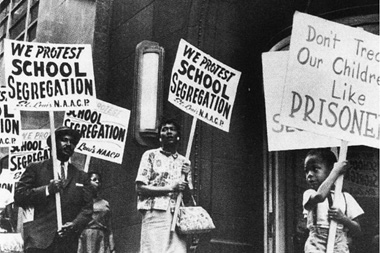A False Crisis Set Education Reform Adrift for 35 Years
The false crisis created by politicians pushing a political agenda focused the nation’s attention on the wrong reforms.
The political debate that followed the release of A Nation at Risk kept the public from hearing the potential solutions offered in the report itself. While President Reagan’s report on education in America is famous for the words that helped create the false crisis, “a rising tide of mediocrity,” the lesser-known words from A Nation at Riskwere those describing the creation of a “Learning Society.”
Unfortunately, Reagan did not speak in public about a “Learning Society” — a concept that has now been redefined by a variety of organizations further muddying our political “education reform” waters.
The National Commission on Excellence in Education clearly conveyed the ideal of a Learning Society by its…
“commitment to a set of values and to a system of education that affords all members the opportunity to stretch their minds to full capacity, from early childhood through adulthood…”
The concept of the Learning Society is centered on creating life-long learning as the norm. It is about the need for our education system to ensure all children are learning how to learn. It is about becoming self-reliant in an ever-changing world.
The Commission began its study in 1981 with some well-defined items of “concern” to be addressed in their investigation. Included was “defining problems which must be faced and overcome if we are successfully to pursue the course of excellence in education.” The focus of the study was secondary schools (high schools and Continue reading: A False Crisis Set Education Reform Adrift for 35 Years - The Crucial Voice of the PeopleThe Crucial Voice of the People
We Set Our Course On The Wrong Destination
The Declaration of Independence is seen as our nation’s promise. It contains guiding principles upon which our nation was built. Its words invoked a vision, a place to be created, a destination. Because of it, America became the “separate and equal” sovereign nation it set out to be.
By 1954, it was decided that when it came to public schools “separate but unequal” was our reality. A socioeconomic and racial inequality in America was acknowledged. That fact alone was justification for the writing of federal education law in 1965. And we set our course of action on offering equal access. However, desegregation —a forced attempt to offer that access—overshadowed full implementation of the law.
 But equal access alone was never enough; the American standard is one of quality.
But equal access alone was never enough; the American standard is one of quality.
So as 1983 rolled around, the National Commission on Excellence in Education openly questioned the quality of our public secondary schools and made the call that we were A Nation at Risk based on eleven “indicators.” The majority of those measures were standardized test scores. The course was set. The destination was higher scores.
At that time, the commission’s analysis of statistics painted a bleak picture. And even though some of us still believe their recommendations were generally in the best We Set Our Course On The Wrong Destination

